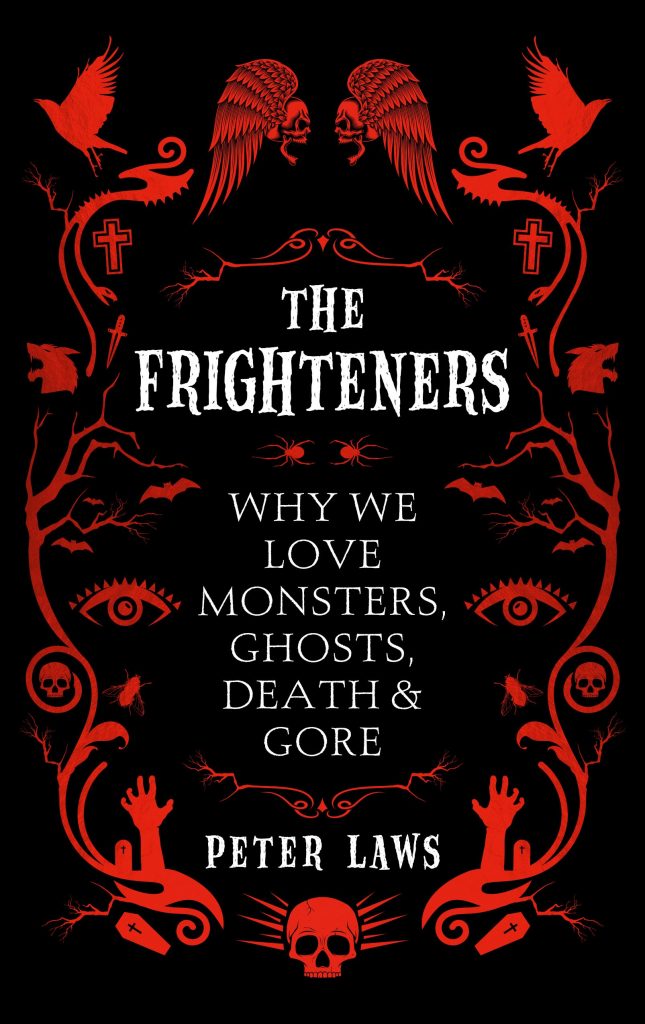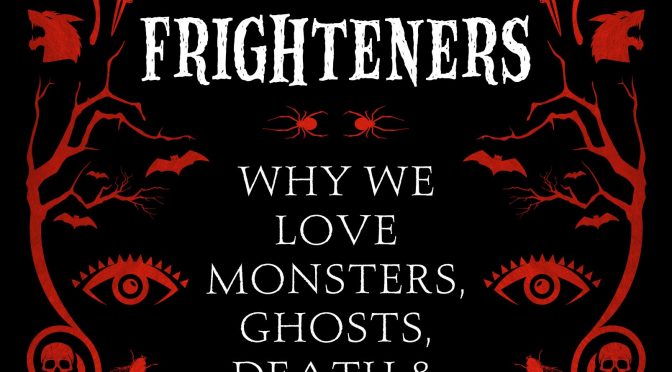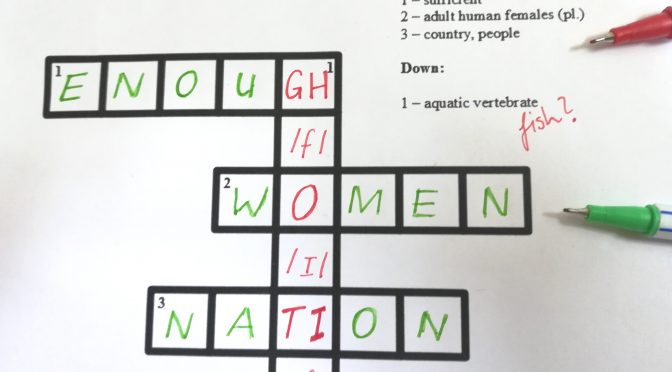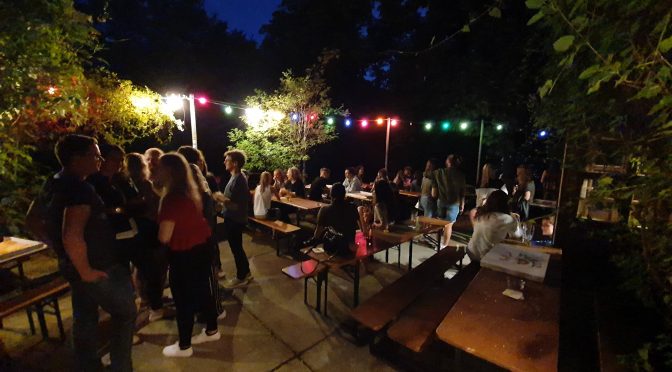…and I’m not talking about your exams
With the upcoming summer break and our current topic of ‘Language and Identity’ in mind, I got inspired to read more books. Books that revolve specifically around our main topic in a very varied way, but more on that in the next few weeks. Stay tuned!
“The Frighteners – Why we love monsters, ghosts, death & gore“, by Peter Laws, will start my little review series. And while the subtitle already gives away what the book is all about, the cover itself makes its own very direct statement: red gothic skulls, zombie hands and tombstones are thematically arranged around the title. If you’ve read my own article, ‘Torn between two cultures‘, this term, you might have already gathered that the macabre certainly is nothing I would ever back off from. Quite the contrary! I guess this is why a dear friend of mine gifted this book to me a few months back. How right she was in doing so…
I went in completely blind – nope, not even the blurb to what this book wants to tell me – and the more surprised I found myself after the first few pages. I hadn’t heard of Peter Laws before, just like most of you, I will assume, unless you’re an avid reader of “The Fortean Times – The World’s Weirdest News”. If so, you’ll also have probably come across his monthly column about horror movies. I assume that this is what sparked my own interest, and curiosity made me have a look at the blurb after all. This man certainly knows what he’s talking about, right? A quick google search of his other books mentioned tried to shock me with some mysterious and eerie-looking cover art to his novels “Purged” and “Unleashed”. Amazing! Someone that really revels in their fascination for the morbid. What else is there about him? Well, the usual. Apart from the books already mentioned, some podcasts on YouTube, and he’s an ordained reverend. Hold on a second. A man of God writing about the supernatural? I left my pitchfork rest in the closet just a moment longer and see what he really wants to convince me of before I call the Inquisition.
I’m glad I stuck with it. Peter Laws’ narrative style is fantastic. From the start, you’ll feel right there with him on his journey. A journey straight to the land of vampires, but also through time – to explore the development of horror culture – or straight into the depths of the human psyche. He really knows how to keep the reader engaged and how to convey his message, which is researched in great detail, with footnotes for the curious. As a student during exam time, I would usually throw a book with footnotes straight on the pyre with some of the witches Mr. Laws mentions. He introduces it so intuitively, though, that it didn’t bother me in the least. I guess that might be the famous priest rhetoric shining through here.
On the topic of priests: I can already hear all my fellow agnostic and atheist friends’ alarm bells ringing at once. And I’m not going to lie; I expected more preachy-ness after reading Mr. Laws’ biography. But this ‘fear’ is just rooted in more stereotypes that, either through his ingenuity or rhetoric, he manages to subvert completely. Frankly, he’s exactly the kind of person that would make me listen to a sermon once in a while again. That’s not to say that he doesn’t bring up his professional career here or there. But could you blame him as a man of God that is pondering whether God himself is just slowly getting more and more frustrated with having to protect a reverend all day long from all the “horror demons” trying to pull him to the dark side?
Last but not least, my personal favourite chapter was the one that’s inevitably linked to horror culture – death. Not because of a morbid fascination, but because, as he so rightly mentions in his book, too, it’s a topic that is never brought up in society nowadays. What could shed more insight on this taboo than a casual interview between a reverend and an undertaker? The transitions between these funny bed-time stories and the serious ones of two people talking about our (most likely) last moments on this planet happen so seamlessly, yet professionally. And right before you get lost in between the pages, Mr. Laws makes sure to take you right out of it, metaphorically speaking, by putting you on a chair next to him, and to straight up tell you “that he will understand if you want to put away the book for just a few moments to ponder your own life. He will be waiting right here”. I took one of those many moments in the book to do exactly that: put away the book, but instead of reflecting on my own decisions, I decided to start writing what you see on your screen right now.
If you’re curious about what else Peter Laws brought up in “The Frighteners”, make sure to pick it up and try to escape from everyday life. A journey I promise you won’t regret.

The Frighteners – Why we love monsters, ghosts, death and gore
Hardcover: 320 pages
Publisher: Icon Books Ltd.
ISBN: 9781785782206
Publication date: 22/03/2018
Price: 12.99 GBP or 11,99 Euro
Review by Tobias Lorenz
Book by Peter Laws
Pictures: Icon Books Ltd.







